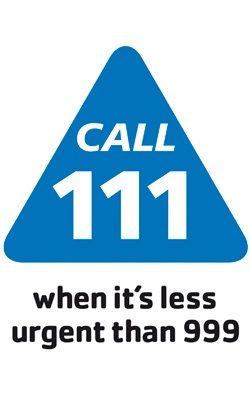In a life-threatening emergency
Always call 999 if someone is seriously ill or injured, and their life is at risk.
Examples of medical emergencies include (but are not limited to):
- chest pain
- difficulty in breathing
- unconsciousness
- severe loss of blood
- severe burns or scalds
- choking
- fitting or concussion
- drowning
- severe allergic reactions.
When it's not a life-threatening emergency
If it is not a life-threatening emergency and you, or the person you are with, do not need immediate medical attention, consider other options before you dial 999:
- Look after yourself or the patient at home. If you cannot stay at home, see if family or friends are able to help.
- Talk to your local pharmacist.
- Visit or call your GP.
- Call NHS 111.
- Visit the NHS Choices website.
- Make your own way to your local A&E department, walk-in centre, minor injuries unit or urgent care centre. (Arriving in an ambulance does not necessarily mean you will be treated more quickly.)
- For free and confidential sexual health services visit www.sexualhealthbucks.nhs.uk or call: 0300 303 2880

